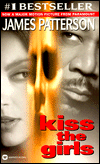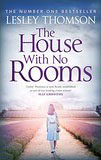Darkly Dreaming Dexter, by Jeff Lindsay
Book Review by Mike Swope
Have you read this book?
I first learned of Dexter by overhearing some commentary on television about a Showtime original series based on characters in a novel about a policeman who is also a serial killer who only kills other serial killers. The possibilities were intriguing. I now own a paperback copy of Darkly Dreaming Dexter, have rented the entire first season of the series on DVD, and am on the lookout for opportunities to purchase the other two books in the series. That is to say, Darkly Dreaming Dexter is a great read. A novel about a serial killer surely sounds like a book with a good deal of violence, terror, blood and ugliness, but Darkly Dreaming Dexter is not this kind of book. And that's what makes it a great read, and Dexter a great character. It is filled with ironies and insights which make the reader laugh nervously and watch his neighbors a little more closely.
Ironies abound in Darkly Dreaming Dexter. Dexter is a blood splatter expert for the Miami PD. He reads and maps the blood at crime scenes to help determine what has happened there, to put violent criminals behind bars. Dexter is very good at reading blood splatters. Dexter is also a serial killer, a predatory criminal himself, which gives him uncanny insight into not only blood spatter patterns but also the criminal mind and motive. He accurately predicts how or why a killer has committed his crime and guides detectives, which typically leads to a successful arrest and prosecution. Dexter, however, is not your average serial killer (aside from the fact that he works for the police). He preys only upon other serial killers. Working for the police department, he has access to criminal files, and through careful detective work he makes absolutely certain that his victims are guilty. He will not allow his "Dark Passenger" to harm the innocent.
Dexter's choice of prey is part of a code instilled in him by his adoptive father, Harry, a policeman who wanted to cure Dexter's peculiar emptiness but came to understand that he could only guide Dexter to choose how and when he succumbs to the darkness within. Harry helped Dexter choose alternative victims as he grew up, often taking him hunting, and when he realized that Dexter would one day kill people -- realized that Dexter actually wanted to kill people -- he coached him to choose his victims carefully. "Some people need killing," Harry said. Dexter's first human victim, in fact, is a nurse who is overdosing Harry with morphine, who has overdosed many patients over the years. "Stop her," Harry told Dexter, giving his blessing. Harry also taught Dexter investigative techniques to make sure that these people who needed killing were absolutely guilty, and to help Dexter avoid being caught himself for his kills. So Dexter chooses his victims carefully. He doesn't want to disappoint Harry. And he certainly doesn't want to be caught.
Dexter's adoptive sister, Debra, it so happens, is likewise a police officer with the Miami PD. She knows nothing about Dexter's "Dark Passenger," although she has grown up with him. As the novel begins, Debra wants to be moved from vice to homicide. So when someone begins killing hookers in her district, she enlists Dexter's help to do some detective work and get her put on the case. Debra is naive and thinks nothing of Dexter's uncanny insights into the crimes as they evolve. She does not suspect there is anything amiss with Dexter. To Debra, Dexter's just very, very smart about murder scenes. (Rest assured that these murders are not Dexter's work.)
Dexter's character also reflects things we have learned about serial killers in the last few decades, thanks in large part to John Douglas and the criminal profiling work of his colleagues at the FBI. Darkly Dreaming Dexter is appropriately told in the first person by Dexter himself. Dexter tells us that he is not human, that he does not feel emotions as we do. He also tells us that he cannot control himself, that his need flows and ebbs unpredictably (the irony in this, of course, is that Dexter DOES control himself until he finds an acceptable victim, just like real serial killers). Dexter has also learned how to appear to be normal, thanks in large part to Harry's vigilant and effective instruction. Dexter does all the things a normal man does, responds the way a normal man should under the appropriate circumstances -- Harry coached him in this, too. This ability, of course, is how Dexter has been able to hide his dark need from Debra all this time. He wears the mask of normalcy very, very well. So well he even works for the police.
In Darkly Dreaming Dexter, Lindsay also tends to paint serial killers as something of a secret fraternity. This is perhaps the most chilling aspect of this series and its main character. When the latest serial killer in Miami begins killing prostitutes, Dexter admires the killer's work and wishes to communicate with him. As the novel continues, Dexter discovers that this new serial killer is indeed communicating with him, staging his crime scenes, giving Dexter clues to his identity. With well-planned insights into the predatory criminal's mind, this book also clearly suggests that perhaps serial killers try to communicate with one another through their victims and crime scenes. That serial killing is a competition (anyone who has read John Douglas' books on the subject know that this is indeed the case among predatory criminals). In this book, Dexter also has the ability to know other predatory criminals after a few brief moments of contact, knows that they are just like him, empty inside, harboring their own Dark Passenger. Dexter, in fact, recognized this in Harry's nurse, his first victim. But so, too, did Harry. Readers may wonder how Harry knew this nurse in this way, and how he knew how to help Dexter as he did. Has Harry, we may ask, learned these techniques from experience?
I have purposely avoided discussing too many events that take place in this book, discussing only the larger concerns about character and the things that make this book worthy of reading. Lindsay has done a surprisingly entertaining but chilling job creating interesting and memorable characters and situations that immediately create irony and tension in Dexter's world. Though Darkly Dreaming Dexter is quietly terrifying, and gives us a realistic glimpse into a fictional serial killer's mind, habits and evolution, thankfully it is not a particularly bloody or violent book. For some readers, this only makes the book all the more terrifying and blood-curdling. Gore and violence aren't frightening. The situations that spawn them are. Situations such as we find in Darkly Dreaming Dexter. Dexter, the handsome, quiet-spoken, criminally insightful Miami PD blood spatter expert.
PS: If any readers knows where I can acquire an inexpensive hardback edition of the first edition of Darkly Dreaming Dexter contact me!
Ironies abound in Darkly Dreaming Dexter. Dexter is a blood splatter expert for the Miami PD. He reads and maps the blood at crime scenes to help determine what has happened there, to put violent criminals behind bars. Dexter is very good at reading blood splatters. Dexter is also a serial killer, a predatory criminal himself, which gives him uncanny insight into not only blood spatter patterns but also the criminal mind and motive. He accurately predicts how or why a killer has committed his crime and guides detectives, which typically leads to a successful arrest and prosecution. Dexter, however, is not your average serial killer (aside from the fact that he works for the police). He preys only upon other serial killers. Working for the police department, he has access to criminal files, and through careful detective work he makes absolutely certain that his victims are guilty. He will not allow his "Dark Passenger" to harm the innocent.
Dexter's choice of prey is part of a code instilled in him by his adoptive father, Harry, a policeman who wanted to cure Dexter's peculiar emptiness but came to understand that he could only guide Dexter to choose how and when he succumbs to the darkness within. Harry helped Dexter choose alternative victims as he grew up, often taking him hunting, and when he realized that Dexter would one day kill people -- realized that Dexter actually wanted to kill people -- he coached him to choose his victims carefully. "Some people need killing," Harry said. Dexter's first human victim, in fact, is a nurse who is overdosing Harry with morphine, who has overdosed many patients over the years. "Stop her," Harry told Dexter, giving his blessing. Harry also taught Dexter investigative techniques to make sure that these people who needed killing were absolutely guilty, and to help Dexter avoid being caught himself for his kills. So Dexter chooses his victims carefully. He doesn't want to disappoint Harry. And he certainly doesn't want to be caught.
Dexter's adoptive sister, Debra, it so happens, is likewise a police officer with the Miami PD. She knows nothing about Dexter's "Dark Passenger," although she has grown up with him. As the novel begins, Debra wants to be moved from vice to homicide. So when someone begins killing hookers in her district, she enlists Dexter's help to do some detective work and get her put on the case. Debra is naive and thinks nothing of Dexter's uncanny insights into the crimes as they evolve. She does not suspect there is anything amiss with Dexter. To Debra, Dexter's just very, very smart about murder scenes. (Rest assured that these murders are not Dexter's work.)
Dexter's character also reflects things we have learned about serial killers in the last few decades, thanks in large part to John Douglas and the criminal profiling work of his colleagues at the FBI. Darkly Dreaming Dexter is appropriately told in the first person by Dexter himself. Dexter tells us that he is not human, that he does not feel emotions as we do. He also tells us that he cannot control himself, that his need flows and ebbs unpredictably (the irony in this, of course, is that Dexter DOES control himself until he finds an acceptable victim, just like real serial killers). Dexter has also learned how to appear to be normal, thanks in large part to Harry's vigilant and effective instruction. Dexter does all the things a normal man does, responds the way a normal man should under the appropriate circumstances -- Harry coached him in this, too. This ability, of course, is how Dexter has been able to hide his dark need from Debra all this time. He wears the mask of normalcy very, very well. So well he even works for the police.
In Darkly Dreaming Dexter, Lindsay also tends to paint serial killers as something of a secret fraternity. This is perhaps the most chilling aspect of this series and its main character. When the latest serial killer in Miami begins killing prostitutes, Dexter admires the killer's work and wishes to communicate with him. As the novel continues, Dexter discovers that this new serial killer is indeed communicating with him, staging his crime scenes, giving Dexter clues to his identity. With well-planned insights into the predatory criminal's mind, this book also clearly suggests that perhaps serial killers try to communicate with one another through their victims and crime scenes. That serial killing is a competition (anyone who has read John Douglas' books on the subject know that this is indeed the case among predatory criminals). In this book, Dexter also has the ability to know other predatory criminals after a few brief moments of contact, knows that they are just like him, empty inside, harboring their own Dark Passenger. Dexter, in fact, recognized this in Harry's nurse, his first victim. But so, too, did Harry. Readers may wonder how Harry knew this nurse in this way, and how he knew how to help Dexter as he did. Has Harry, we may ask, learned these techniques from experience?
I have purposely avoided discussing too many events that take place in this book, discussing only the larger concerns about character and the things that make this book worthy of reading. Lindsay has done a surprisingly entertaining but chilling job creating interesting and memorable characters and situations that immediately create irony and tension in Dexter's world. Though Darkly Dreaming Dexter is quietly terrifying, and gives us a realistic glimpse into a fictional serial killer's mind, habits and evolution, thankfully it is not a particularly bloody or violent book. For some readers, this only makes the book all the more terrifying and blood-curdling. Gore and violence aren't frightening. The situations that spawn them are. Situations such as we find in Darkly Dreaming Dexter. Dexter, the handsome, quiet-spoken, criminally insightful Miami PD blood spatter expert.
PS: If any readers knows where I can acquire an inexpensive hardback edition of the first edition of Darkly Dreaming Dexter contact me!
|
Click here to buy Darkly Dreaming Dexter, by Jeff Lindsay on Amazon
|
Darkly Dreaming Dexter, by Jeff Lindsay on Amazon
| More Books You Might Like |
Comment on Darkly Dreaming Dexter, by Jeff Lindsay



